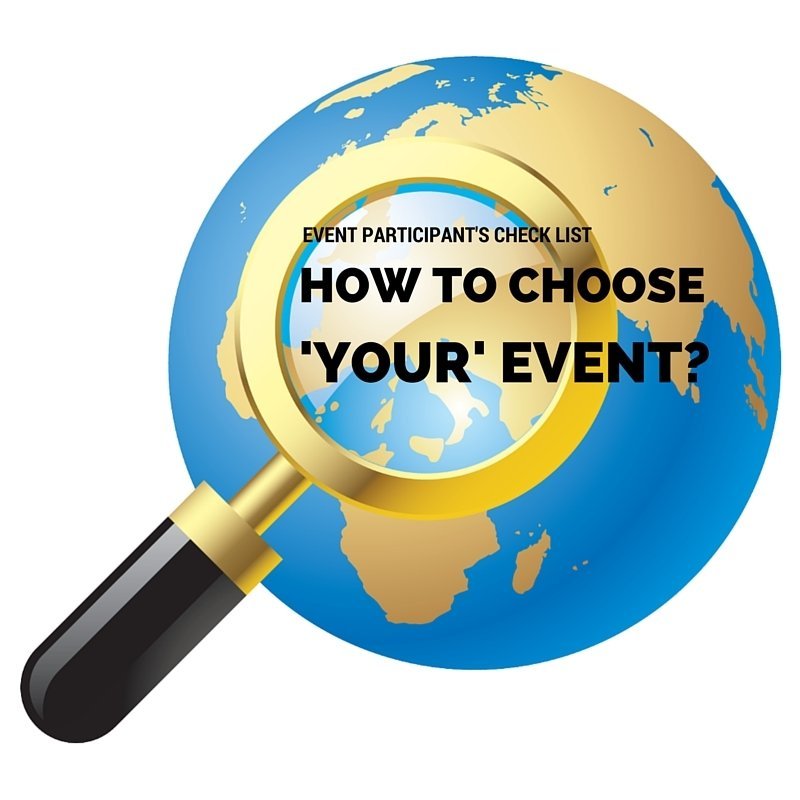We all know we live in the era of TMI (too much information) effect. We experience avalanches of useful (and not so much) information falling on us every minute, every single day. To escape being under such burden, we choose to go into twitter-mode: reading just headings, hundreds of N-symbol headings, and if they happen to catch our eyes – we go and like/RT, and then again and again. Found guilty on this? Yes we probably all are. It seems like we find 140 (upd: 280) symbols is quite enough information to not go further and read the whole thing.. Yet this is why finding the right information – just now and just for you – has become such a quest nowadays.
Thinking about it in the context of event planning, it came to my mind that being an event participant today might be quite complicated role. For instance, your boss told you to choose an event you think brings a lot of value. Or you are on holidays and plan to visit some festivals. Or take my own example: when studying at the University of Surrey, I was awarded with grant for participating in any interesting educational event in my field, and could choose it myself. I got delighted and thought it would be easy and fast. Well. First I had to filter through a massive number of events which seemed interesting just at first sight and did not have any value when studying it deeper. Then I had a long list of those events I selected. So to choose one was not an easy task at all – too much information plus budget and time restrictions made this task quite hard.
So today our post is one of those I would like to devote to event participants. And the first question – and the first step – is: how to choose ‘your’ event? The one worth visiting? The one worth to you particularly?
Well, you definitely are all aware how to look for information, including the one about events – be that simple googling or reading the leaflets brought to your office. However, you may notice that 9 out of 10 events would be described as the ‘leading’, ‘best’, or ‘unique’ in the field. Thus, to reduce the amount of time and efforts to skip through the information, and to find the one that is worth visiting and really is beneficial to you, I’ve put together some check list on how to choose ‘your’ event.

Check the following:
- first of all, does the event correspond to your goals? Therefore, how clear do you set goals for taking part in the event? Defining your own – unique – goals is the single most important task: it makes your participation meaningful. Surely it might not be so important if you are visiting a food festival – although it can also be a waste of time and you just won’t get the maximum of fun out of what the event would deliver if you planned ahead and determined you goals.
- is an event being held for the first time?
- are there people you’d like to listen to/leaders in your field that would speak/participate in it?
- does the event’s agenda include trendy topics for your field?
- is there positive feedback about the event? Note here: try to find such feedback that is not quoted by the organisers. I don’t mean that would not be authentic, no. But surely the organisers tend to quote positive feedback only. To make sure you get the right picture (for yourself), it is useful to find out the event’s downside moments. Also, you can check out your fellow colleagues’ feedback on the particular event – you can find such as comments to the articles in your field, or on LinkedIn. I don’t suggest you spend too much time looking out for such type of feedback – just make sure you pay attention to it if you come across it.
- does the event’s venue suit you? (will the event be held in your city/country and is it conveniently located to reach by plane/train/car) and/or can you combine visiting the event with some other activities/things for you to do in that place?
- does the event have a convenient, user-friendly and up-to-date webpages? Ideally – with a mobile view. Plus, how easy it is to find and check all required information about the event? It is important as you make a decision on participation based on this info: e.g. preliminary agenda, speakers, location & venue, fees and surely, contacts.
- can you get fast and reliable response from the event’s team BEFORE you actually signed up? Is there an opportunity for engagement? For example, you ask a question and receive a reply within a business day. Or, you’ve got personalized agenda. Or, you can chat with the event’s speaker and discuss the planned topic.
Note though – just one criterion of those mentioned above is not enough to decide if the event is worth visiting – you would need a combination of a few to get the full picture.
Now, this is the first stage – choosing an event that is right for you. Yet it is just the beginning. I will keep posting about the next stages and things to do so that you, dear participant, could get the most effective and amazing event experience.
To be continued…
Read Part 2: How to get prepared for a business event
ME



